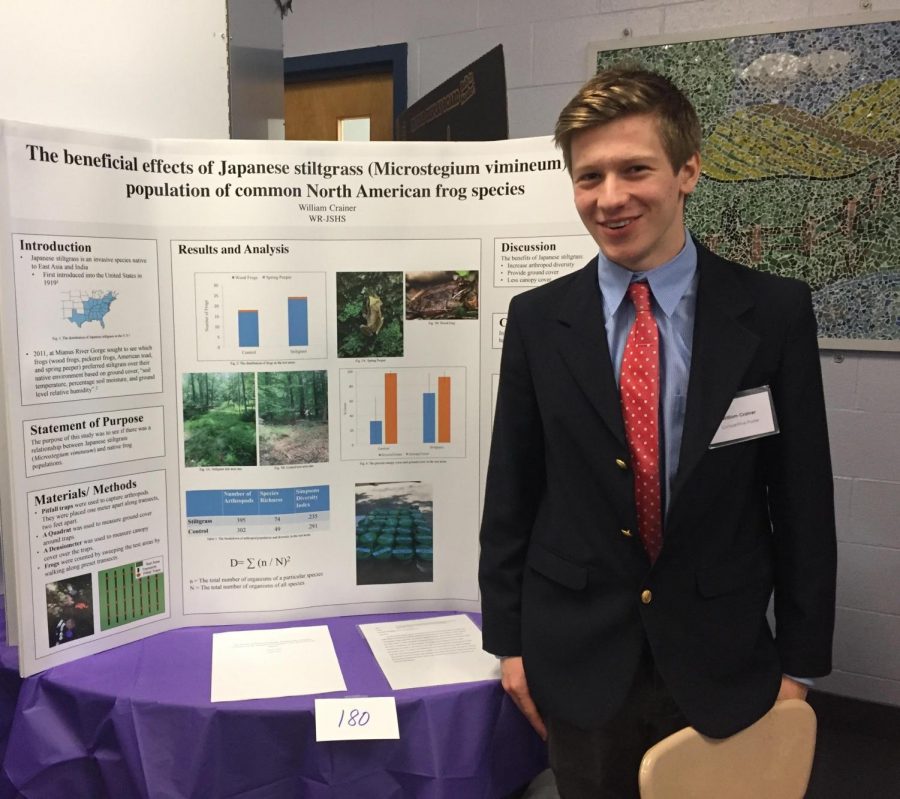Will Crainer Hops Into the Independent Research Program
Credit: Courtesy of Will Crainer
Will Crainer’s work at the Mianus River Gorge gives him many opportunities to create projects regarding his studies of frogs. He presents his poster on the effects of Japanese stilt grass on the population of North American frogs at a science competition.
January 19, 2018
While many students may feel that frogs are trivial and uninteresting creatures, this is not the case for junior Will Crainer, a member of the Independent Research Program at Hackley.
The Independent Research Program, first established in 2015, provides students with the opportunity to pursue a scientific research topic in a genuine setting.
The three-year program is intended to give students first-hand experience in a lab environment and engage in research. Students in the program typically spend six to eight weeks over the summer in a lab conducting research with a mentor.
Will is currently researching frogs, and how they are impacted by anthropogenic effects. For his current project, he is looking at the microbial communities of frogs and tadpoles and observing how they change through the life stages, and how their environment affects their microbiome.
Will said, “Last summer I worked with a postgraduate student from Virginia Tech who I met through a program at the Mianus River Gorge. We spent about 100 hours collecting frogs and tadpoles and measuring them, weighing them, and swabbing them for their microbial community…we will repeat this process this summer. This is all in an effort to learn more about how microbes move through the the environment and through the stages of life.”
Starting from a young age, Will has been fascinated by frogs and even caught them in his backyard. He participated in a program at Teatown Lake Reservation called the Teatown Environmental Science Academy (TESA) where he looked at how invasive grasses affected the native frog populations. Since these grasses were brought by humans, this led him to articles based on looking at the effects of anthropogenic impacts in amphibians.
Now, he has an internship at the Mianus River Gorge where he is working on the experiment with comparing cutaneous microbiomes.
“This entire process was very interesting to me because I learned about field collection and how hard it can be without real control over many factors. I learned a lot about the field in general and the processes which go into actually being able to conduct an experiment,” said Will.
“I also learned how to read a paper and some good communication skills as it can often be hard to communicate with my mentor who is so far away (our only options for communication are email and Skype).”
Through his research, Will intends to gain a better understanding of how microbes move through the environment and the life stages of frogs. He hopes that his research can help in bioaugmentation efforts and slow or stop the effects and virulence of chytridiomycosis.

